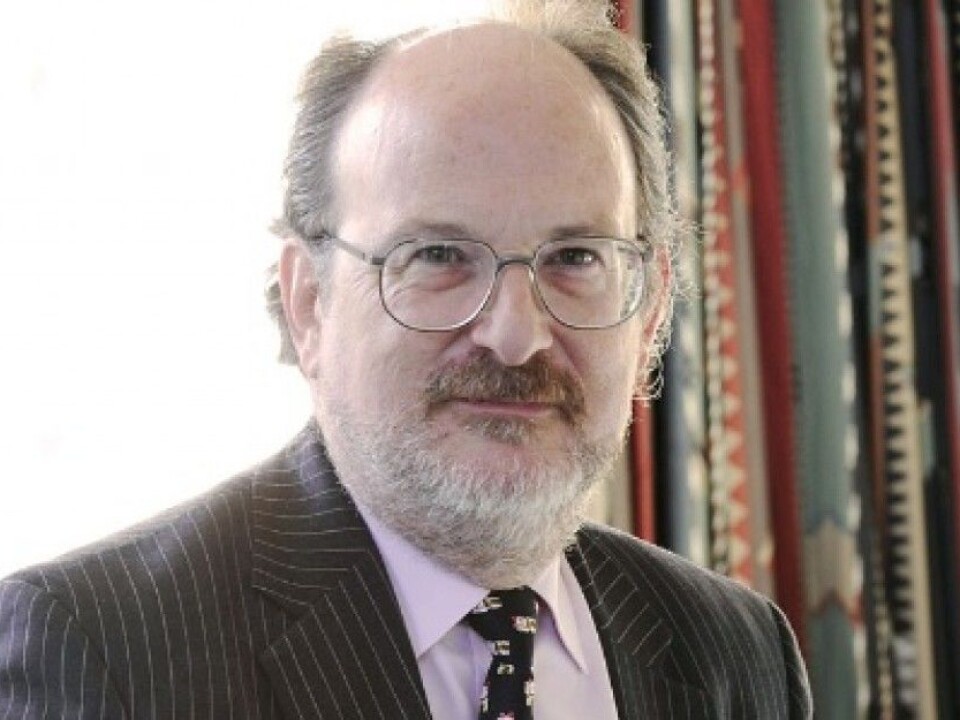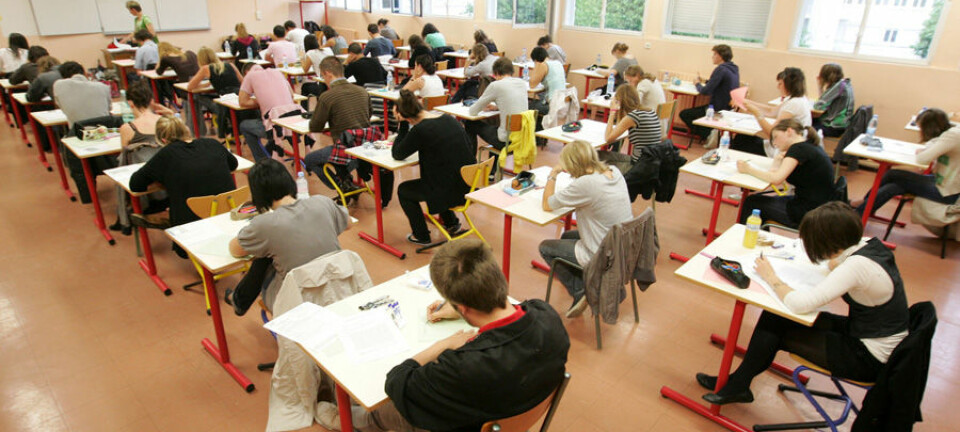
Strict parents can get wasteful teenagers
Youth get good economic habits if their parents talk about savings and financial planning. Kids who perceive their parents as psychologically controlling can often be just as extravagant, hedonistic spenders as ones whose parents make few demands.
Denne artikkelen er over ti år gammel og kan inneholde utdatert informasjon.
All parents want to prevent their children from becoming financially irresponsible and neck deep in debt. What should parents do to help their kids avert such pitfalls of consumerism? Should we set strict limits or let them do as they please and hope for the best? Should we instil frugality by involving them in our savings plans?
Ellen Katrine Nyhus, a professor in behavioural economics at Norway’s University of Agder, says that the topic of adolescents’ relationship to money and economics has often been overlooked by researchers.
How to pass on sound economic sense?
Earlier research has copiously shown that both good and poor economic judgement is transferred from parents to their children. But the issue of what kind of rearing works best is virgin territory. Professor Ellen Katrine Nyhus of the University of Agder decided to look into the matter.
Along with Professor Paul Webley she interviewed upwards of 500 Norwegian ninth-graders and their parents.

The result has been published in Journal of Genetic Psychology Research and Theory on Human Developement.
Savers seek an education
“We know that parents transfer their economic orientation and behaviour to their children. We wanted to find out what parenting style had the best effect on their economic consciousness,” says Nyhus.
She and Webley discovered that conscientious adolescents who save their allowances or earnings have a different type of parents than their peers who splurge. Sensible teenagers who save long-term are more likely to plan getting a higher education, which in turn secures them higher incomes.
Three styles of parenting
Parents’ styles were placed in three categories: authoritative, authoritarian and neglectful.

• The authoritative – a parenting style that sets clear limits but is also receptive of children’s opinions. These parents are warm and aware of what their children need.
• The authoritarian style is marked by controls and demands. These parents are less sensitive to the needs of their kids and expect rules and instructions to be followed without discussion or back-talk.
• The neglectful parenting style sets lower demands and gives little support. These parents are emotionally warm but they don’t draw the line, setting clear limits.
Teens respond
The adolescents answered a number of questions which revealed how good or poor they were at controlling use of money. Other questions involved their work contributions and the plans they had for the future.
The teens were also asked to describe how their parents treated them.
The researchers compared the parents’ various ways of raising their children with how conscientious or wasteful the adolescents were.
This causes uneconomical teens
Teenagers who described their parents as controlling tended to be hedonistic – they were more concerned about short-term gratification than the others. They were also less future-oriented and conscientious.
The teens with neglectful parents had the lowest average scores with regard to work efforts, long-term perspective and ability to control their outlays. Most of these kids had no plans for university educations.
“This raises the probability of them having lower incomes as adults,” comments Nyhus.
Balance of confidence and control works best
Some of the teenagers described having parents who showed confidence in them and allowed them to make their own decisions. But these parents also set limits. Teens with parents in this category tended to be more future-oriented and dutiful than others.
They also had a tendency to save instead of emptying their pockets, exhibiting a control of consumption.
Nyhus adds that several of the ninth-graders in this group also had planned on university educations.
On the other hand, the researchers found that the teens with a hedonistic orientation had less control of their expenses and had few plans for the future.
In addition, the teens that had parents who controlled them stringently and monitored their consumption quarrelled more with mum and dad.
Stimulating long-term thinking
Parenting style was also an important factor in the teens’ plans for future educations.
“Our findings show that it’s important for parents to stimulate their kids to think long-term during childhood and adolescence,” says Ellen Katrine Nyhus.
Authoritative parents do just that in connection with many types of behaviour. They set demands and explain the reasons for them. This appears to have a positive effect on much behaviour that involves weighing between immediate gains and future ones, she explains.
Less likely to have debt problems
The results in this study are in line with other research showing that an open but firm parenting style gives the best results for the development of a child.
Teenagers who get used to saving money benefit from this as adults – they are less likely to get hopelessly in debt and they accumulate larger holdings than others.
Education can help
Previous studies have shown that pupils whose parents do not save money got more benefit than others from courses in high school that covered the issues of consumption, budgeting and credit supervision.
This means that learning about economics at school can at least partially substitute for failing at home to hear that “a penny saved is a penny earned”.
---------------------------------------------
Read the Norwegian version of this article at forskning.no
Translated by: Glenn Ostling


































